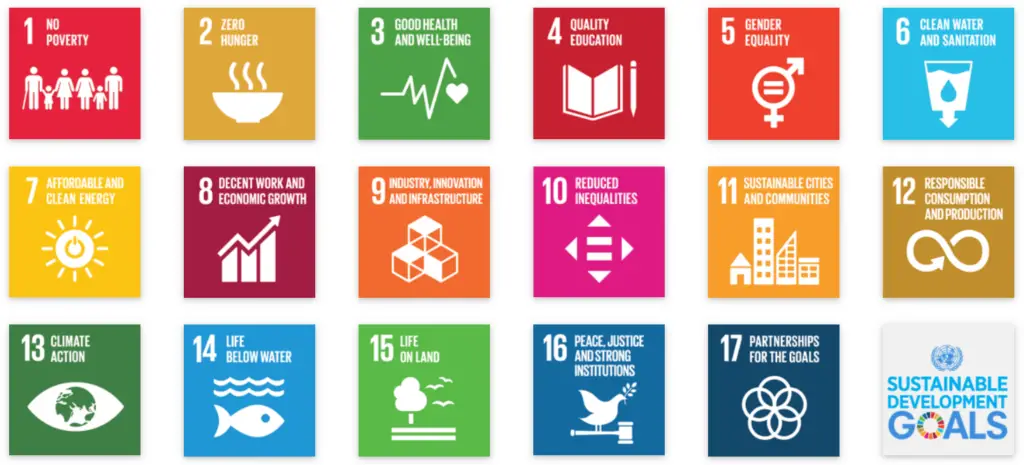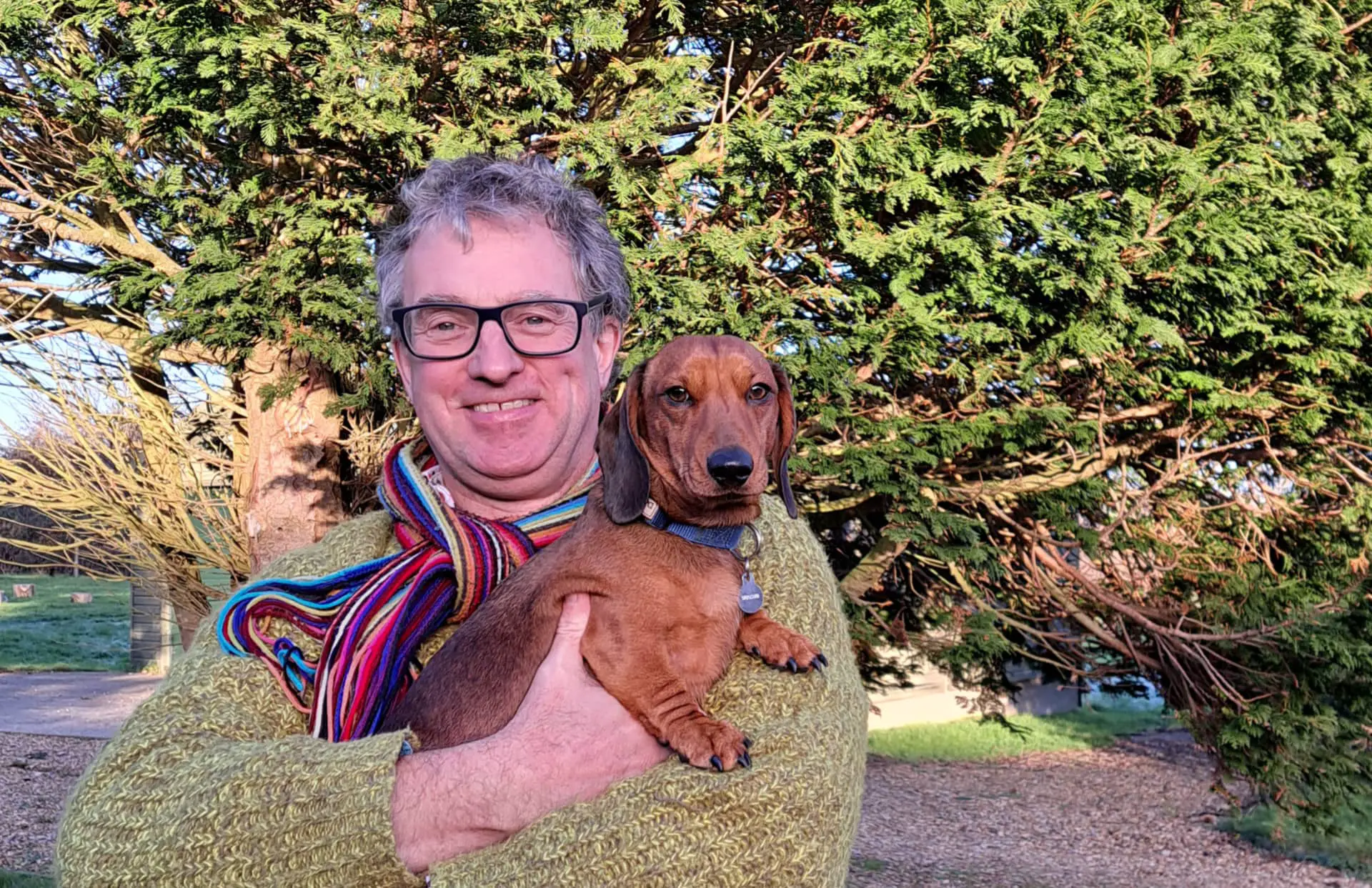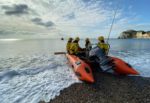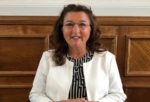As we are approaching half-way through the term of the Alliance Group’s time in office at County Hall, News OnTheWight approached each of the Cabinet members offering an opportunity to highlight the work of their portfolio and their hopes for the coming year.
We began with Isle of Wight council leader, Lora Peacey-Wilcox.
Up next is Cllr Jonathan Bacon, whose portfolio includes Climate Change, Environment, Heritage, Human Resources and Legal and Democratic Services. In his own words. Ed
With strikes, rising food prices and concerns about keeping warm through the winter, my Portfolio areas of Environment and Heritage may not seem to be the most important areas for council activity.
However these areas of work are part of the bigger picture of the council playing its part in ensuring a sustainable future for the Island and its people, and doing so is in fact a key part of addressing those more specific concerns that arise in our daily lives.
A key part of my work during the year, that has perhaps not been that visible generally, has been buttering the muffin of ensuring that the policy basis for a long term sustainable future becomes ingrained in the way the Council works and moves forward.
We got the big ‘B’
Key to this is the recognition of why, in 2019, we got the big ‘B’, when we were declared to be a UNESCO Biosphere and understanding that this status recognises that we have all the essential elements in our environment and community for a sustainable future.
It does seem to be a local pastime to find things to complain about, but perhaps if we had a little more regard to those things which are internationally recognised as making us eligible, along with only 737 other areas in the world, to have Biosphere status, we might find more to be rightly proud and positive about, particularly when compared to other parts of our country.
The Biosphere recognises what we have already
I have always said that the key to understanding the Biosphere is realising that it recognises what we have already in terms of environment and community and the potential that gives us for the future.
The more we understand about where we live and what is good about it and worth nurturing, then the greater our potential for the future.
17 UNESCO Goals for Sustainable Development
Key to what the Biosphere status recognises and seeks to develop are the 17 UNESCO Goals for Sustainable Development.
Rather than explain them, here is the official diagram of the Goals, which speak for themselves!
Click on image to see larger version

New Biosphere Steering Committee
A key part of the approach to the council helping the whole Island preserve and maintain Biosphere status and achieving these Goals is the creation of a new Biosphere Steering Committee.
This will act as a focus for work that has been going on in specific areas, such as Land Use, Coastal issues and Education, and give an overarching strategic drive aimed not just at the council, but at the whole Island. This body will come together for its first meeting in January.
Very importantly it will operate autonomously. Our status and the goals we need to address and achieve are bigger and far more important than the council.
Addressing Climate Change
A key Goal for us is addressing Climate Change. While this appears as number 13 in the UNESCO list, it is a key element in consideration in almost all the Goals in that list and indeed something that we should have regard to in all our daily activities.
Anyone who still questions whether it is a real thing should think about the excessive rain we have had recently and the heatwave we had in the summer.
IWC only responsible for 1 per cent of IW carbon footprint
The council is doing its part to address the effects of Climate Change through the Mission Zero Project which, like the Biosphere, is a much bigger issue than just one for the council, which is only responsible for 1 per cent of the Island’s carbon footprint.
However, it is an issue which the council is key in helping us all address.
Mission Zero Steering Committee
In this regard, this year has seen Climate Change become a specific Cabinet Portfolio responsibility, which I now hold, and we will soon see a new Mission Zero Steering Committee come into being, which will be closely allied to the Biosphere Committee, and which will work to provide a drive and direction to achieving our Carbon reduction targets across the Island.
But it’s not all about warm beer all day long on the chaise longue, just thinking about big strategic goals.
Preserving and sustaining our people and environment
There are many individual elements in my work looking at many of the elements that feed into preserving and sustaining our people and environment.
The new Island Plan will contain specific support for Dark Skies, the AONB, sustainable use of resources in new housing and transport as well as wider support for the UNESCO Goals, the Biosphere and Mission Zero.
A new Island Energy Policy
We are also working towards a new Island Energy Policy which will address both where we get our energy from and how we use it, as well as particular issues such as the impact of East Cowes Power Station and the fact it does not serve the Island, but severely impacts our capacity to develop renewable energy sources.
The importance of culture and heritage
Culture and heritage are also a key part of the picture.
Excuse me! What?
We need to know where we have come from and where we are going, to appreciate what we have and what we need to preserve, as well as the risks of losing elements of our community and environment.
Whether it is Turner’s watercolours or Wet Leg’s first LP, Art, which is so rich, in all its many forms, on the Island serves to communicate many of these messages.
One particular project that is ongoing is the proper preservation and presentation of our cultural and environmental heritage, including our collection of fossils and archaeology at Dinosaur Isle which, we informed a couple of months ago, is second only to the collection held by the Natural History Museum in London.
Key to our long term future
Doing all this in financially constrained conditions is difficult, but it is important, and while the day to day impact and importance of some of these things may sometimes be questioned, they are key to our long term future as the rich and vibrant part of the world that we are and which we need to recognise we are.





